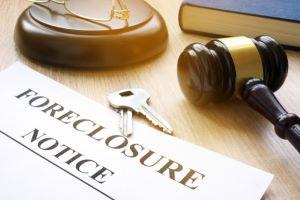1512 Artaius Parkway, Suite 300,
Libertyville, IL 60048
Call for a FREE Phone Consultation
847-549-0000
Video Consultations Also Available
 Spanish
Spanish Cantonese
CantoneseServing Clients Across 7 Illinois Locations
What Is the Difference Between Foreclosure and Repossession?
 The economic impact of the COVID-19 pandemic has been significant. Many people throughout the United States have either taken a pay cut, been temporarily furloughed, or lost their jobs completely. As a result, renters and homeowners are struggling to make their monthly housing payments. While repossession and foreclosure are both processes used by creditors to reclaim property that is used as collateral for a loan, the procedures followed in each type of case are different.
The economic impact of the COVID-19 pandemic has been significant. Many people throughout the United States have either taken a pay cut, been temporarily furloughed, or lost their jobs completely. As a result, renters and homeowners are struggling to make their monthly housing payments. While repossession and foreclosure are both processes used by creditors to reclaim property that is used as collateral for a loan, the procedures followed in each type of case are different.
Defaulting on a Loan
Repossession is common in vehicle loans. Once a person becomes delinquent on payments and the borrower is in default on the loan, the lender can take back possession of the property at any time. The foreclosure process, on the other hand, is more complicated than repossession. If someone is 120 days delinquent on his or her mortgage, the lender can begin official foreclosure proceedings by filing a complaint in court. The homeowner has 30 days to respond to the complaint.
Foreclosure refers to the legal process where real estate is taken away from a borrower. Depending on state law and the circumstances of a case, a foreclosure may be judicial or nonjudicial. Illinois law outlines specific procedures that the lending institution must go through before having a foreclosure sale.
In Illinois, foreclosures are governed by the Illinois Mortgage Foreclosure Law (IMFL). Under the IMFL, all foreclosures are judicial, meaning they must be handled through court proceedings. A judicial foreclosure is typically filed in the circuit court of the county in which the property is located. A homeowner may be able to avoid foreclosure by bringing their mortgage current, refinancing their mortgage, exploring workout options with the lender, or selling the home. If a homeowner is unable to reach an agreement with the lender, the foreclosure will proceed, and the home may be placed up for sale.
Anyone can bid on the home at a foreclosure sale. The lender can even bid on the property through a credit bid in the amount that is owed. However, other parties must bid cash on a property at a foreclosure sale. In some situations, the lender may be the highest bidder and therefore becomes the new owner of the property and takes possession of the house. The property is then considered real estate owned (REO). If the occupants do not move out voluntarily, they will be evicted. Once the home has been vacated, the new owner will take possession.
Contact a Lake County Loan Modification Attorney
If you are having trouble keeping up with your housing payments, you are not alone. The global coronavirus pandemic has created an economic downturn. A tenacious Grayslake foreclosure defense lawyer from Newland & Newland will help you determine the best course of action for you, whether it be loss mitigation or affordable foreclosure alternatives. To learn more about how we can assist you, call our office today at 847-549-0000 to request a free consultation.
Sources:
https://www.ilga.gov/legislation/publicacts/fulltext.asp?Name=095-0961
https://www.consumer.ftc.gov/articles/0144-vehicle-repossession
 Stop Foreclosure
Stop Foreclosure




















